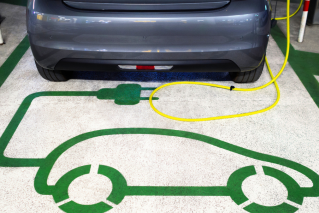Consumers feeling glum about the economy
A fall in consumer confidence augurs badly for the economy – not just consumer spending but also business investment.
Consumers had been getting a bit ahead of themselves.
The latest fall in the Westpac-Melbourne Institute index of consumer sentiment brings the level of consumer confidence back in line with reality.
It fell to 100.2 in February, from 103.3 in January and 108.3 in February last year. Based on a sample survey of consumers, it measures the balance between positive and negative responses to five survey questions. At 100, the index shows positive and negative responses are evenly balanced.
But the latest reading should not be seen as a neutral level.
Since the survey began in late 1974, the index has averaged 101.7, higher than the latest reading. But that period of nearly 40 years includes some very gloomy times associated with the monetary squeezes and recessions of the early 1980s and early 1990s. It also spans the global crisis in 2008-2009.
Excluding those periods of great anxiety, the index has averaged about 106. And that makes sense – the natural state for a normal human being is mildly optimistic.
From that perspective, sentiment is currently well below par, and not in the golfing sense where below par is good. There are sound reasons for being less upbeat than normal. Unemployment is rising and jobs are becoming scarcer.
“Households continue to be very concerned about the labour market,” Westpac’s chief economist Bill Evans said in a commentary on the data.
The Westpac-Melbourne Institute index of unemployment expectations rose in February to its second highest point since July 2009.
“The weakness in the labour market, particularly over the last six months, has been taking its toll on households’ confidence,” Mr Evans said.
And with debt still near a record high relative to household income, fears generated by the talk of higher interest rates as early as the end of this year are hardly irrational. Mr Evans said consumers were “clearly more worried about interest rates”.
But, although things are not especially good at the moment, the feature of the latest survey results is how consumers feel about what’s around the corner.
“The theme from this survey appears to be that households are particularly worried about the future,” Mr Evans said.
The gap between the components of the survey measuring current conditions and expectations was now at its widest since June 2000, he said.
Consumer sentiment is loosely correlated with short-term trends in consumer spending. But it’s worth noting that all business managers are also consumers.
So, fading consumer confidence may be reflected in an unwillingness of businesses to undertake the investment needed to get the economy back up a pace consistent with adequate job creation.
The Australian Bureau of Statistics (ABS) will release its quarterly survey of business capital spending intentions – based on a survey done in January and early February – on February 27.








